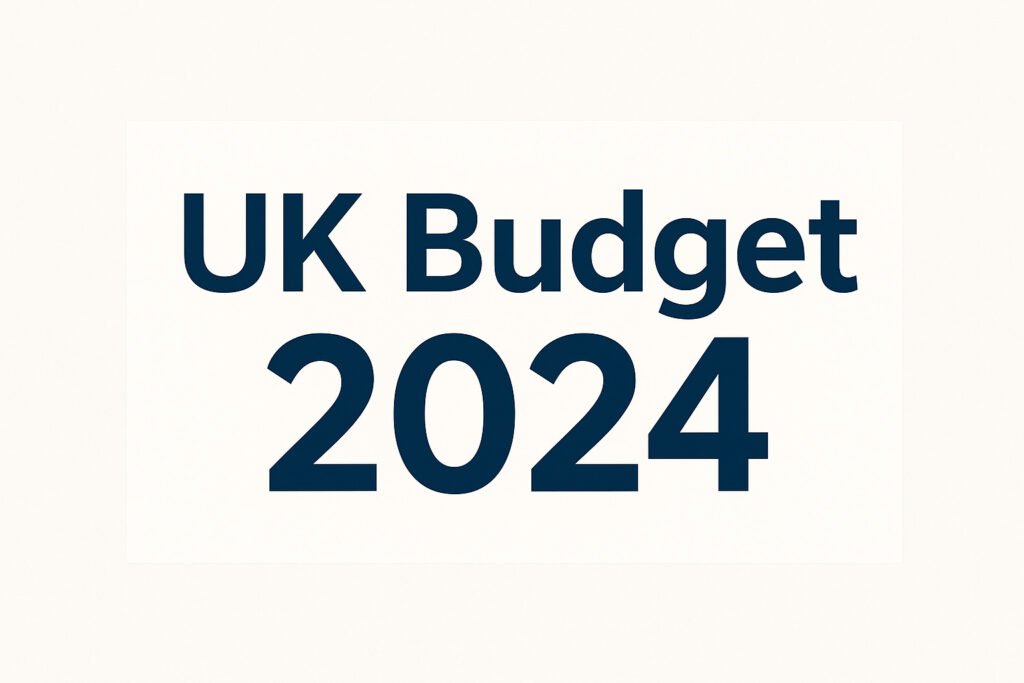With the UK Autumn Budget 2024 due to be published soon, we’re here to help you navigate any potential changes with our quick round-up of all the key predictions.
On Halloween Eve, 30th October, Chancellor Rachel Reeves will publish her Autumn budget – and the rumours swirling already have many commentators spooked. While the exact changes are yet to be announced, the budget is expected to include some painful tax increases as the new Labour government seeks to plug a £40bn gap in public finances. Prior to the election, Labour pledged not to increase taxes on working people, but it has warned that it intends to make hard decisions to fix the foundations of the economy with the upcoming budget.
Here are the key predictions you need to know:
Capital Gains Tax
Capital Gains Tax is expected to increase in the 2024 Autumn budget. This is the tax you’ll need to pay if you sell off an asset and make a profit, no matter whether it’s a work of art, shares in a company, or a second home. Capital Gains Tax is currently set at 20% (24% for residential property) and due to be paid on any profits over £3,000. The exact increase we can expect is still a bit of a mystery; some commentators have predicted that it could rise in line with income tax and introduce a top rate of 45%, but a smaller rise of a few percentage points may be more likely.
Inheritance Tax
Another tax that is expected to increase in the new budget is Inheritance Tax. As its name suggest, this tax must be paid by beneficiaries when they inherit an estate. Under existing legislation, estates worth over £325,000 are taxed at 40%. Experts are predicting that the tax rate could increase, or the threshold decrease. It’s also thought that the government may cut or lower the current exemption that allows homeowners to pass property to their children tax free. At the moment, homeowners can pass on a property worth £500,000 (or £1m if they’re a couple) without paying Inheritance Tax as long as it goes to their children.
Stamp Duty
Moving house comes with a whole host of expenses – and Stamp Duty is often one of the most expensive. While first-time buyers are exempt if they buy a property worth less than £300,000, movers must pay 5% on any home worth between £250,001 and £925,000. There’s also a 3% surcharge due for people buying second homes or buy-to-let properties. While not yet confirmed, experts are predicting that Stamp Duty could increase by 1%, which could raise £40m for the government.
Employers’ National Insurance
While Labour promised the employees wouldn’t face higher taxes in their election manifesto, the new government has since clarified that employers won’t necessarily be exempt. Many commentators have taken this to mean that the Chancellor will increase Employers’ National Insurance. This is currently set at 13.8%, but it’s estimated that increasing this by just 1% could bring in £8bn – £9bn. However, there are concerns that businesses will react to this increase by taking steps that will negatively impact employees such as offering lower salaries, putting limits on pay increases, and cutting work benefits.
Pensions
Pension rules might also be changing in the 2024 UK Autumn budget. Under existing rules, if you’ve paid into a private or workplace pension throughout your career, you can take out a lump sum once you reach the age of 55. This money will be tax free if you don’t take out more than 25% of your total pension pot and it’s not more than £268,275. There are rumours that this tax-free threshold will be lowered to £100,000. The government may also start charging Inheritance Tax on pensions, which aren’t currently considered part of your estate.
Fuel Duty
An Autumn budget prediction that could hit drivers hard is a potential increase in fuel duty. While the Chancellor hasn’t ruled this out, it could feel like a serious shock to the system if it does happen as fuel duty hasn’t risen for the last 13 years!
VAT
One change that won’t be a surprise when it’s announced is that VAT will now be charged on private school fees. The draft legislation for this policy has already been published so, while VAT is expected to stay at 20%, parents with privately educated children will be facing higher bills from this term onwards (unless the school agrees to absorb the costs themselves.)
Worried that the 2024 Autumn budget will negatively impact your finances? Our team of experts is here to help. Give us a call on 0161 660 0411 or send a message here






